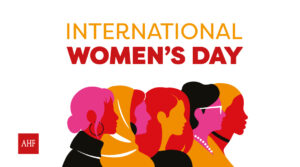After four decades of failed attempts to create a vaccine to prevent HIV infection, researchers at several centers are testing a new strategy that has shown good results, the International AIDS Vaccine Initiative (IAVI) reported. English).
In an article published in the medical journal Science, one of the most prestigious in its field, the authors revealed that they found crucial elements in a completely new strategy that they are investigating, among which a gradual approach for the production of antibodies is capable of attack a wide range of HIV variants.
It is a vaccine with a novel mechanism of action, which is being tested for the first time in humans, the IAVI explained in a statement.
A new strategy
“The data we publish in Science demonstrates, for the first time, that a vaccine can be designed that induces the production of ‘tailor-made’ antibodies in humans,” said Dr. William Schief, professor and immunologist at Scripps Research. , in the United States, which is allied with IAVI and other research centers on this study.
“We specified, in advance, certain molecular properties of the antibodies we wanted to elicit, and the results of this investigation show that our vaccine antigen consistently and accurately induced those types of antibodies,” explained Schief, who is also Director of Vaccine Design Executive at the IAVI Center for Neutralizing Antibodies.
“We believe that the strategy with which we designed this vaccine will be essential to create a vaccine against HIV and could help in the field of creating vaccines for other pathogens that are difficult to counteract,” he added.
The study, called IAVI G001, tested the vaccine in the first experimental stage of a planned multi-stage regimen. The results showed that the vaccine had a favorable safety profile (that is, it did not cause serious side effects) and that it produced the expected response in 97% of the people who received it. The research also includes a detailed immunological analysis of the response to the vaccine.
Preparation for the immune system
Broadly neutralizing antibodies (or bNAbs) are a rare type of antibody that can fight and protect against many different variants of a virus, including HIV, as explained by IAVI. That is why the scientific community has tried to develop a vaccine against HIV that induces the creation of bNAbs, but without success so far.
The researchers in this study are using a strategy called “germline targeting” to eventually produce bNAbs that can protect against HIV.
The first step in targeting the germline includes stimulating certain rare immune cells that can eventually evolve into cells that make the bNAbs needed to block the virus. To take this step, the researchers designed a custom molecule, called an immunogen that can “prime” the immune system and induce responses from these rare bNAb-precursor cells.
The aim of this first stage of the IAVI G001 study was to determine whether the vaccine had an acceptable safety profile and whether it could induce a response from rare bNAb precursor cells. The results proved both, so this “is a big step forward in the development of a vaccine against HIV that is both safe and effective,” said Dr. Dagna Laufer, another of the authors of the research.
“HIV is an area of urgent unmet need around the world, which makes our findings so encouraging,” said Dr. Mark Feinberg, IAVI President. “Through close collaboration between different scientists, disciplines and institutions, we are that much closer to designing an effective vaccine that can help end the HIV pandemic,” he stated.
At AHF Latin America and the Caribbean we know that the search for a vaccine is essential, but so is prevention and care for those already living with HIV. If you want to get a free detection test, come to one of our offices in the region and learn about all our services.






